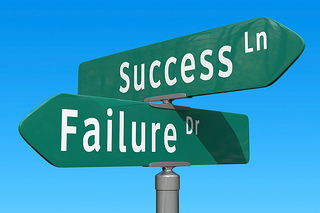 Great article this week in the Wall Street Journal from the C-Suite (View from the Top) with several observations and comments from those who own the seats. What stood out for me were a couple of key lessons from the entrepreneurs that were interviewed.
Great article this week in the Wall Street Journal from the C-Suite (View from the Top) with several observations and comments from those who own the seats. What stood out for me were a couple of key lessons from the entrepreneurs that were interviewed.
First was entrepreneur Jamie Siminoff’s failure on Shark Tank, to which he said, “so what?” He was able to raise several million for his start-up “Doorbot” after failing on Shark Tank and plans to hire 30 new employees to expand into new markets.
When asked how he knows which idea will be a good one, (he’s had 4 successful start-ups so far), he answered that he has no idea. That’s really the point, isn’t it? Key Lesson: The truth is even previously successful entrepreneurs never know which product or service is going to be the winner. They just keep trying until they find one that resonates with customers and with investors – remember fail fast?
The next piece was from the Chief Medical Officer at Pfizer. She said, “people tend to trust companies they understand and companies that demonstrate they are doing the right things.” This is definitely where the small company has the advantage. Big companies have layers of bureaucracy that tend to prevent, rather than encourage employees to do the right thing. If you’ll recall the phrase – “managers do things right, leaders do the right thing” – when was the last time you saw a leader do the right thing? Chances are it was a small company leader. They have more freedom to trust their gut, to go with their values and intuition, and stand up. Key Lesson: Don’t be afraid to live your values. Customers respect it and will follow you. In the end, if someone has a few extra pennies to spend for a company whose values they support, they will do it, it’s worth it.
The last comment was from Jane Park, CEO of Julep Beauty Inc. She talked about how she has worn all the hats and continues to do so as she builds the business while driving the highway at 100 miles per hour. The point she makes is that because you wear all these hats, you have a unique opportunity to probe your customers about what’s important and what matters to them. Big companies have to spend big bucks on focus groups and research firms. Small companies can just ask their customers because they have that kind of relationship with them – all the time. Key Lesson: All you have to do is ask the right questions and sit back and listen. It’s that unique access that gives small companies a competitive advantage over the bigger guy.
Look at all the advantages that entrepreneurs have. Are you innovating and failing fast? Are you doing the right thing? Are you asking your customers what they think and really listening to the answers? If so, you’re ahead in the great game of business.
photo credit: StockMonkeys.com via photopin cc

Entrepreneurs need to reminded “Don’t be afraid to live your values” more often. When you are an accidental entrepreneur friends, family, and advisers are full of recommendations of “you should do this, or that to be successful.” It is critical whether in the heat of the moment or after the fact for a business leader to take a moment to say “Even though that advice was given in good faith, is it appropriate for me?”
I would add “Don’t forget to show your values.” It’s easy in the day-to-day fray to just give an answer to an employee and move on to the next fire to put out. There is an opportunity in that moment to tell your employee why you have decided to make that business decision. I’ve found that is probably the most critical “training” I can provide to our new hires: “This is our culture, this is what I value, this is why we do what we do.”
Yes! Absolutely! Excellent approach! Thanks for adding this.